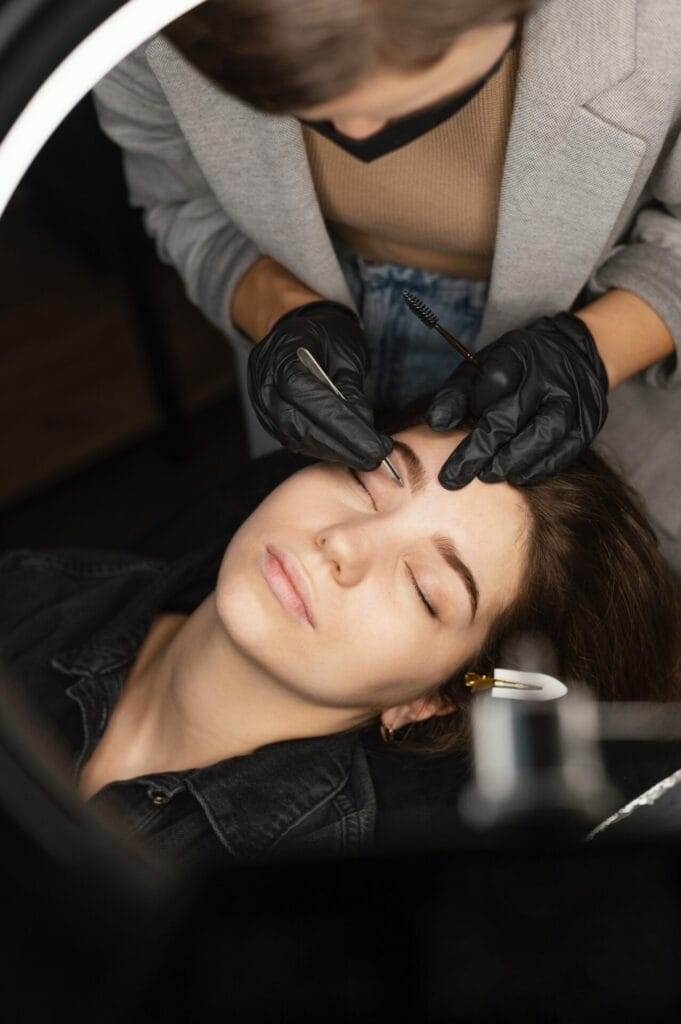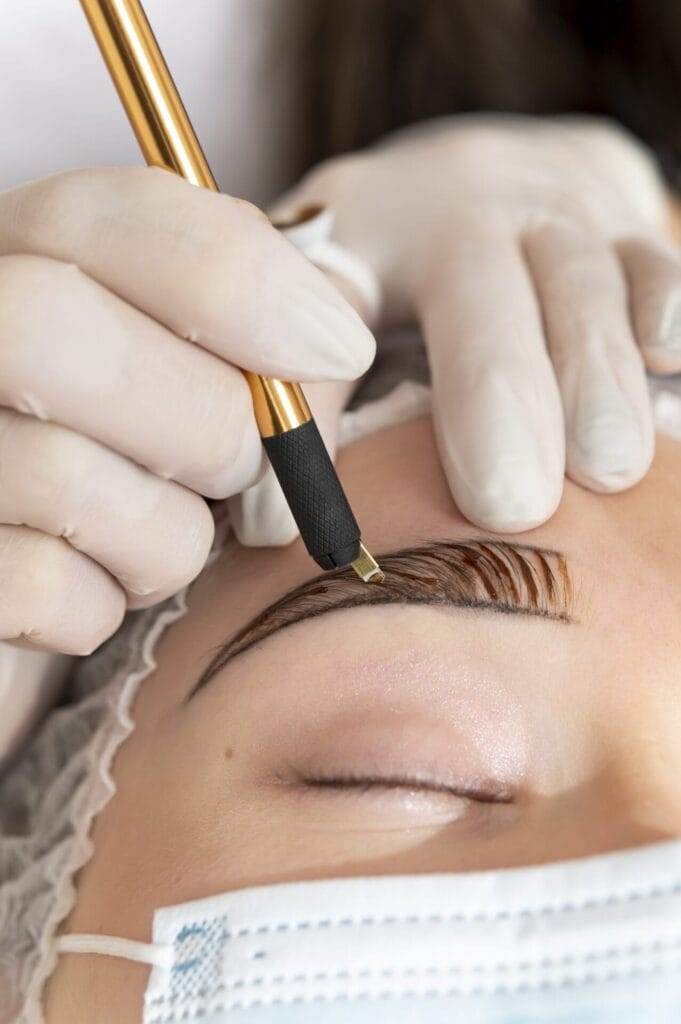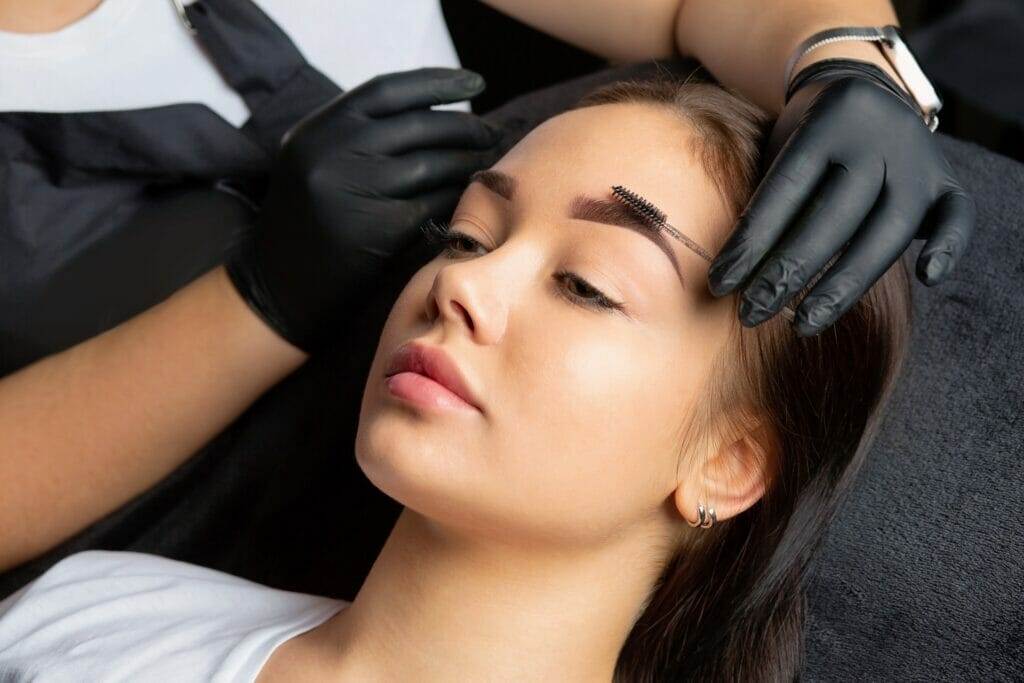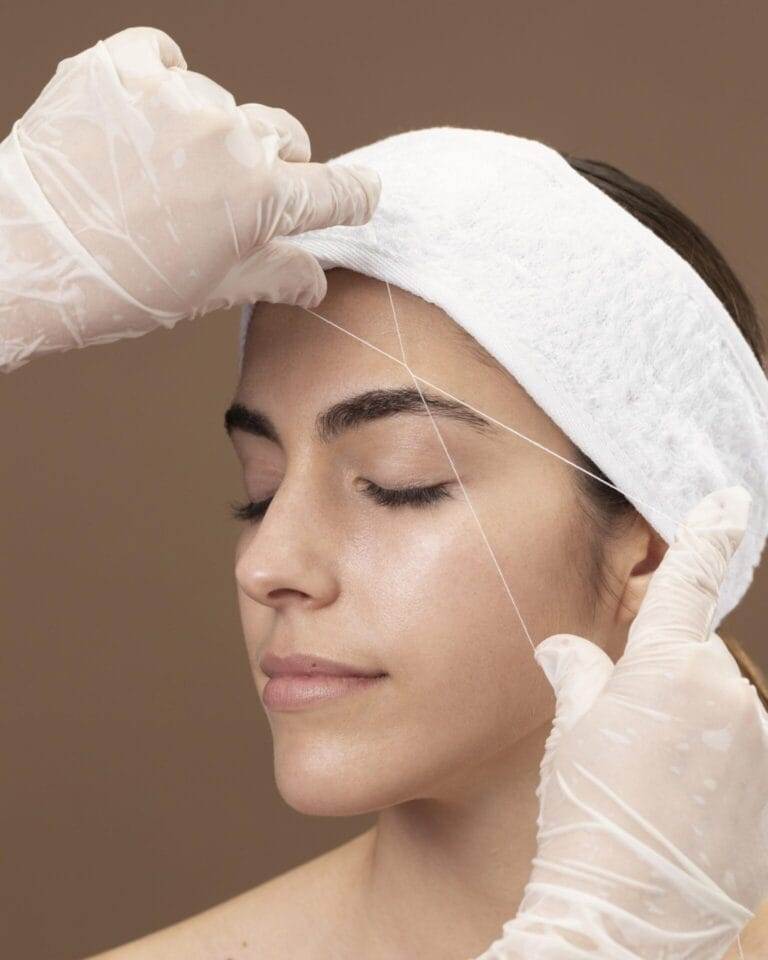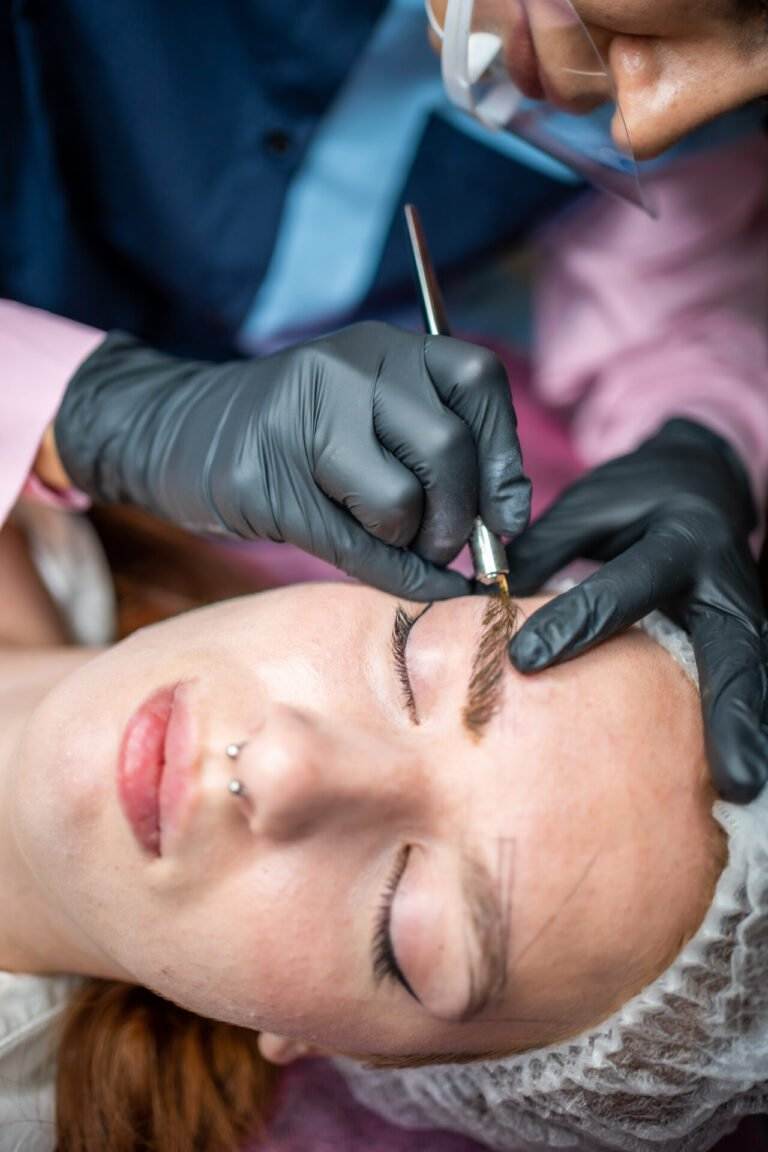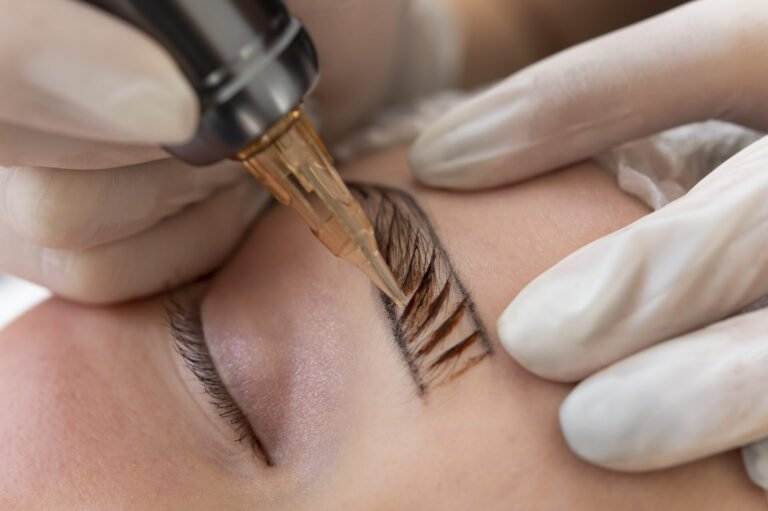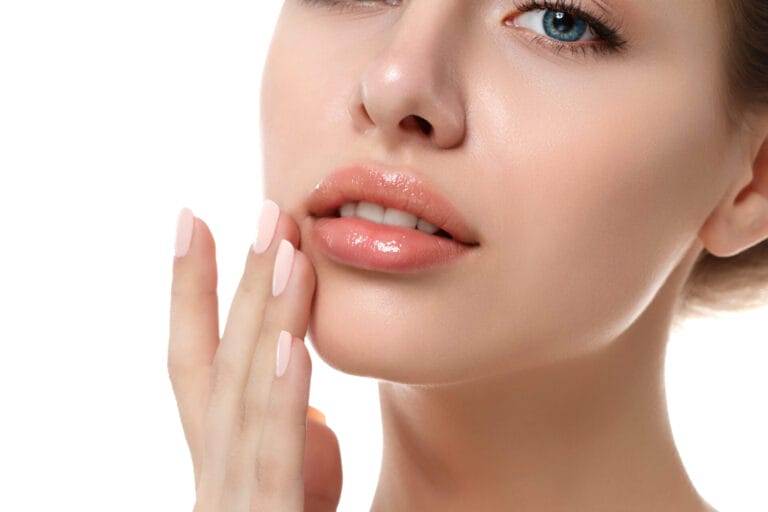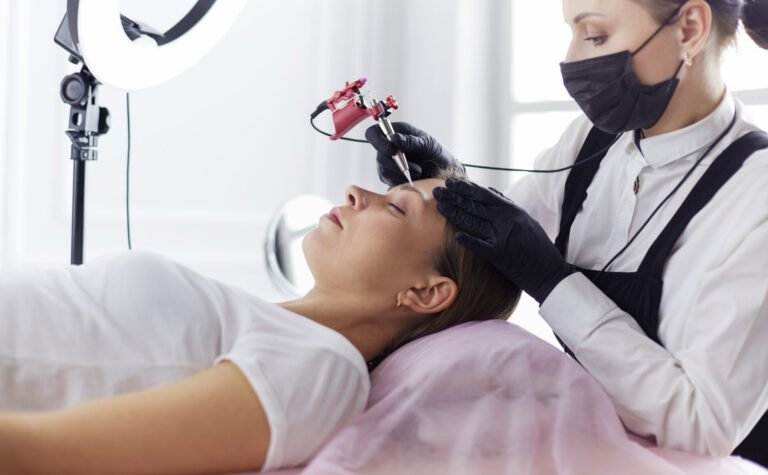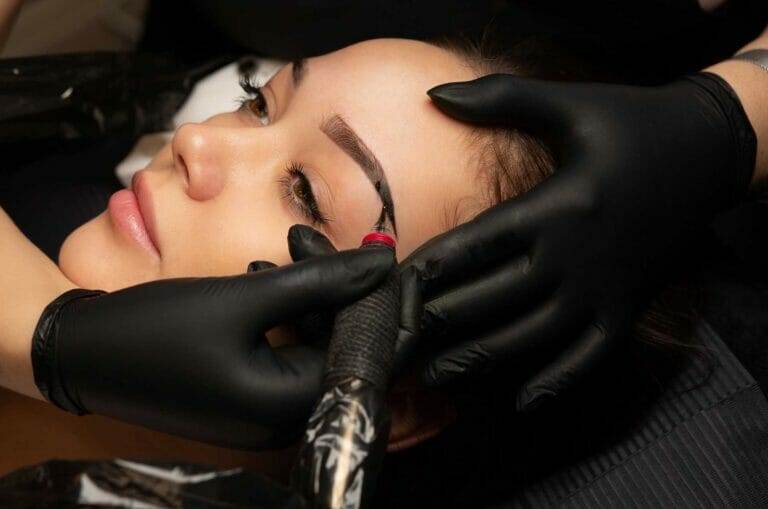In recent years, cosmetic tattooing has become increasingly popular in the beauty industry. What was once considered a niche practice has now become a mainstream beauty trend, with more and more people opting for cosmetic tattoos to enhance their appearance. This rise in popularity can be attributed to several factors, including advancements in technology and techniques, as well as the desire for a more convenient and long-lasting beauty solution.
What is Cosmetic Tattooing? Understanding the Basics
Cosmetic tattooing, also known as permanent makeup or micropigmentation, is a procedure in which pigments are implanted into the dermal layer of the skin to enhance certain features. Unlike traditional tattoos, which are typically done using a needle and ink, cosmetic tattoos are performed using specialized equipment and pigments that are specifically formulated for use on the face.
The process of cosmetic tattooing involves numbing the area to be treated with a topical anesthetic, followed by the application of the pigment using a small handheld device or machine. The pigment is carefully deposited into the skin to create the desired effect, whether it be fuller eyebrows, defined lips, or enhanced eyeliner. The procedure typically takes a few hours to complete, depending on the area being treated and the desired outcome.
The Different Types of Cosmetic Tattoos: Eyebrows, Lips, and More
There are several different types of cosmetic tattoos that can be done to enhance one’s appearance. One of the most popular types is eyebrow tattooing, which involves creating natural-looking eyebrows by filling in sparse areas or reshaping the brows entirely. This can be especially beneficial for those who have thin or overplucked eyebrows.
Another common type of cosmetic tattoo is lip tattooing, which involves adding color and definition to the lips. This can be done to create a more youthful appearance or to correct asymmetry in the lips. Lip tattoos can also be used to enhance the natural lip color or to create the illusion of fuller lips.
Other types of cosmetic tattoos include eyeliner tattooing, which involves adding color and definition to the lash line, and areola tattooing, which is often done for breast cancer survivors who have undergone mastectomies. These are just a few examples of the many different types of cosmetic tattoos that can be done to enhance one’s appearance.
The Benefits of Cosmetic Tattooing: Time-Saving, Cost-Effective, and Long-Lasting
One of the main benefits of cosmetic tattooing is that it saves time and effort in the daily beauty routine. With cosmetic tattoos, there is no need to spend time applying and reapplying makeup every day. This can be especially beneficial for those who have busy lifestyles or who simply prefer a more low-maintenance beauty routine.
In addition to saving time, cosmetic tattooing can also be cost-effective in the long run. While the initial cost of the procedure may be higher than buying traditional makeup products, the long-lasting results mean that there is no need to continually purchase new products. This can result in significant savings over time.
Furthermore, cosmetic tattoos are known for their longevity. Unlike traditional makeup, which can smudge or fade throughout the day, cosmetic tattoos can last for several years with proper care. This means that once the initial healing process is complete, there is no need to worry about touch-ups or reapplication.
The Risks and Side Effects of Cosmetic Tattooing: What You Need to Know
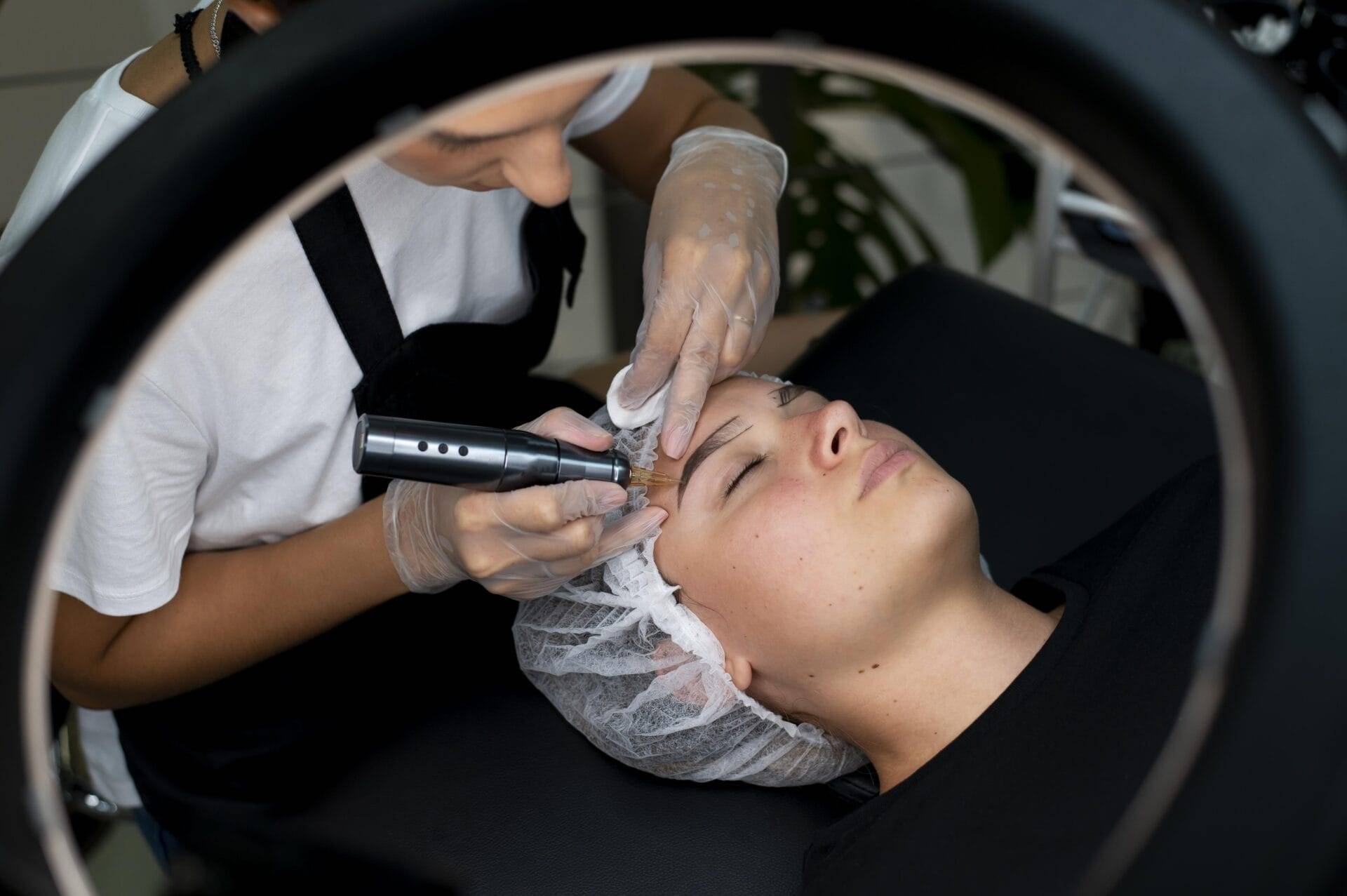
While cosmetic tattooing offers many benefits, it is important to be aware of the potential risks and side effects associated with the procedure. Like any invasive procedure, there is a risk of infection, scarring, and allergic reactions. It is crucial to choose a qualified and experienced cosmetic tattoo artist who follows strict hygiene protocols to minimize these risks.
Additionally, some individuals may experience side effects such as swelling, redness, or discomfort immediately following the procedure. These side effects are typically temporary and subside within a few days. However, it is important to follow the aftercare instructions provided by the tattoo artist to ensure proper healing and minimize the risk of complications.
If complications do arise, it is important to seek medical attention promptly. This may involve contacting the tattoo artist for guidance or consulting with a healthcare professional. It is crucial to address any concerns or issues as soon as possible to prevent further complications.
The Future of Cosmetic Tattooing: Advancements in Technology and Techniques
The field of cosmetic tattooing is constantly evolving, with new advancements in technology and techniques being developed regularly. These advancements are aimed at improving the results of cosmetic tattoos and making the procedure more comfortable for clients.
One of the latest advancements in cosmetic tattooing is the use of digital machines, which allow for more precise and controlled application of pigments. These machines can also be programmed to create different effects, such as hair-like strokes for eyebrow tattoos or gradient shading for lip tattoos.
Another advancement in cosmetic tattooing is the development of new pigments that are longer-lasting and more fade-resistant. These pigments are formulated to mimic the natural colors found in the skin, resulting in more realistic and natural-looking results.
Furthermore, new techniques such as microblading have gained popularity in recent years. Microblading involves using a handheld tool with a series of tiny needles to create hair-like strokes in the eyebrows. This technique allows for a more natural-looking result and can be especially beneficial for those with thin or sparse eyebrows.
Who is a Good Candidate for Cosmetic Tattooing?
Cosmetic tattooing is suitable for a wide range of individuals who are looking to enhance their appearance. However, there are certain factors that may make someone a better candidate for the procedure.
Ideal candidates for cosmetic tattooing are those who have realistic expectations and understand the limitations of the procedure. It is important to have a clear understanding of what can be achieved with cosmetic tattoos and to communicate your desired outcome with the tattoo artist.
Good candidates for cosmetic tattooing are also in good overall health and do not have any underlying medical conditions that may interfere with the healing process. It is important to disclose any medical conditions or medications you are taking to the tattoo artist before undergoing the procedure.
On the other hand, there are certain individuals who may not be suitable candidates for cosmetic tattooing. This includes pregnant or breastfeeding women, as well as those with certain skin conditions or allergies. It is important to consult with a qualified cosmetic tattoo artist to determine if you are a good candidate for the procedure.
Preparing for Your Cosmetic Tattooing Appointment: What to Expect
Before your cosmetic tattooing appointment, it is important to properly prepare to ensure a successful procedure and optimal healing. Here is what you can expect:
1. Consultation: Prior to the procedure, you will typically have a consultation with the tattoo artist to discuss your desired outcome and any concerns or questions you may have. This is also an opportunity for the artist to assess your skin and determine the best approach for your specific needs.
2. Avoid certain medications and substances: In the days leading up to your appointment, it is important to avoid certain medications and substances that can thin the blood or increase the risk of bleeding. This includes aspirin, ibuprofen, alcohol, and caffeine.
3. Arrive with clean skin: On the day of your appointment, it is important to arrive with clean skin free of any makeup or skincare products. This will ensure that the pigments adhere properly to the skin and result in long-lasting results.
4. Numbing cream: Depending on the area being treated and your pain tolerance, a topical numbing cream may be applied to the skin prior to the procedure. This will help minimize any discomfort during the tattooing process.
5. Communication with the artist: Throughout the procedure, it is important to communicate with the artist and provide feedback on your comfort level. If at any point you experience excessive pain or discomfort, let the artist know so that adjustments can be made.
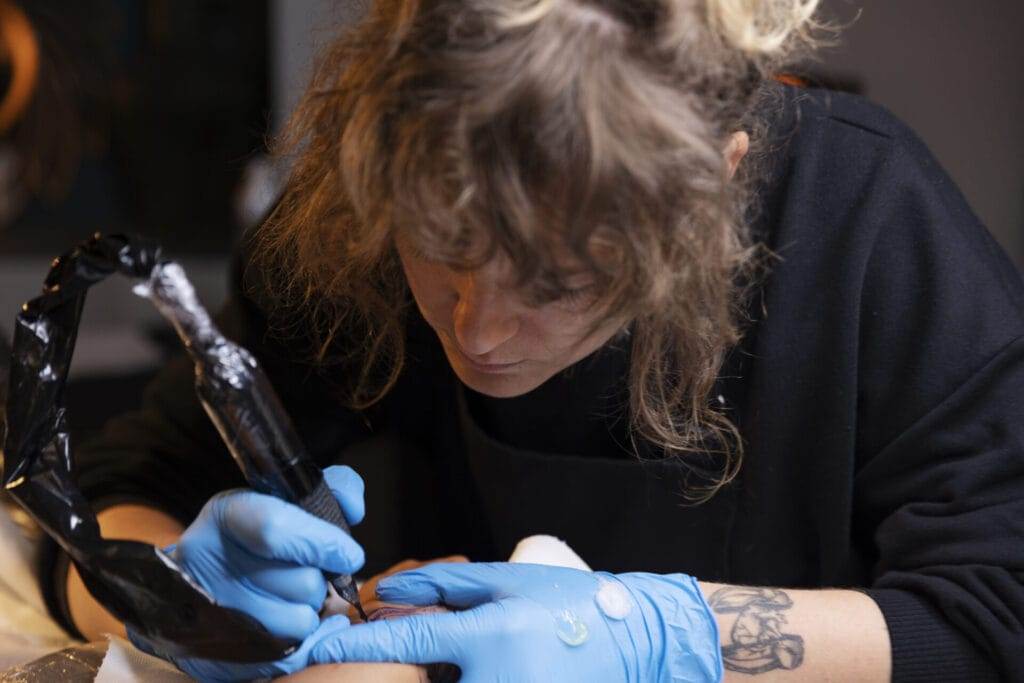
Aftercare for Cosmetic Tattoos: Keeping Your New Look Fresh and Beautiful
Proper aftercare is crucial for ensuring optimal healing and long-lasting results after getting a cosmetic tattoo. Here are some tips for caring for your new tattoo:
1. Follow aftercare instructions: The tattoo artist will provide you with specific aftercare instructions that should be followed closely. This may include avoiding certain activities or products, keeping the tattoo clean and moisturized, and avoiding direct sunlight.
2. Avoid picking or scratching: It is important to resist the urge to pick or scratch at the tattooed area, as this can interfere with the healing process and result in scarring or pigment loss.
3. Avoid excessive moisture: While it is important to keep the tattooed area moisturized, it is equally important to avoid excessive moisture. This includes avoiding swimming pools, hot tubs, and saunas, as well as excessive sweating.
4. Protect from the sun: Direct sunlight can cause the pigments to fade or change color. It is important to protect the tattooed area from the sun by wearing a hat or using sunscreen with a high SPF.
5. Schedule touch-ups if necessary: Depending on the type of cosmetic tattoo and your individual healing process, you may need to schedule touch-up appointments to maintain the desired results. This will be discussed with you during your initial consultation.
The Growing Popularity and Potential of Cosmetic Tattooing in the Beauty Industry
In conclusion, cosmetic tattooing has become increasingly popular in the beauty industry due to its time-saving, cost-effective, and long-lasting benefits. With advancements in technology and techniques, cosmetic tattoos are becoming more realistic and natural-looking than ever before. However, it is important to be aware of the potential risks and side effects associated with the procedure and to choose a qualified and experienced artist.
As cosmetic tattooing continues to evolve, it has the potential to change the beauty industry by offering a more convenient and long-lasting alternative to traditional makeup. With proper research, preparation, and aftercare, cosmetic tattoos can enhance one’s appearance and provide a boost of confidence that lasts for years to come.

